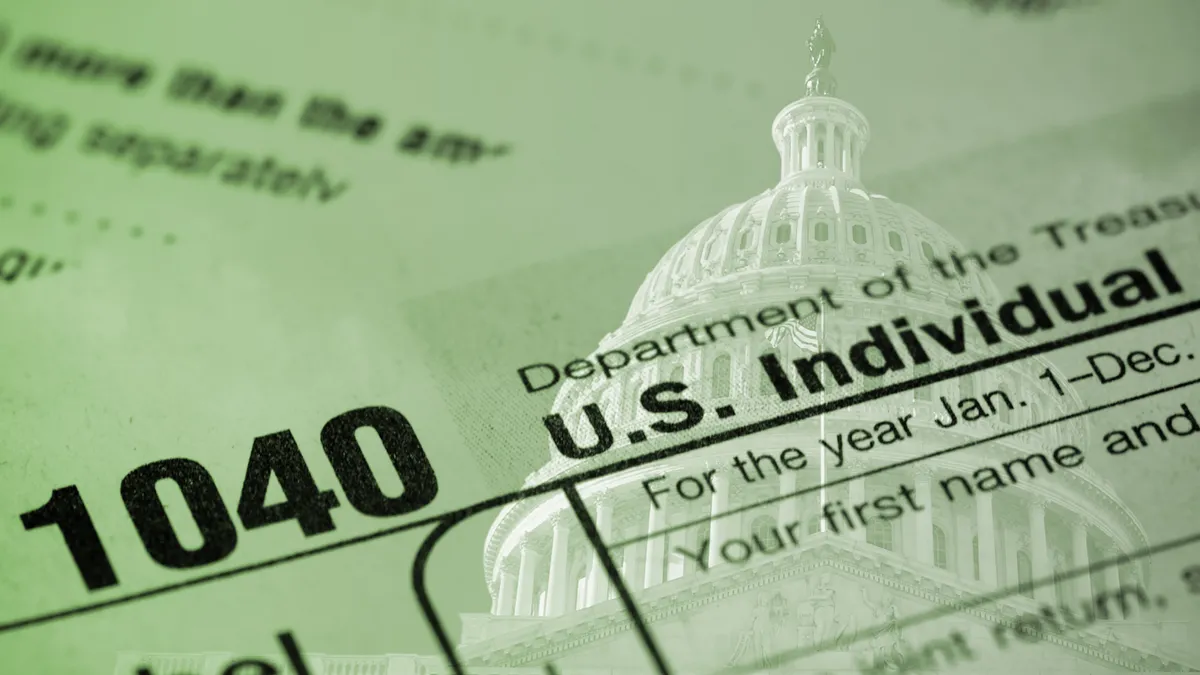Dive Brief:
- The Federal Energy Regulatory Commission issued a Notice of Inquiry seeking comment on the effects of the recent tax overhaul legislation on Commission-jurisdictional rates for public utilities, interstate natural gas pipelines and oil pipelines.
- The agency also issued two show-cause orders on Thursday requiring 48 companies to revise their transmission tariffs that reference the previous corporate tax rate of 35% instead of the newly-approved 21% rate. Companies also have the choice to show why they are not able to reduce the tariffs. In addition to the show-cause orders, the agency issued two waivers to allow the Public Service Company of Colorado and other transmission owners in the Midcontinent ISO to implement mid-year rate adjustments that would align them with the new corporate tax structure.
- FERC's orders come as utilities across the nation are looking at how to adjust rates to match the new corporate tax scheme outlined in the tax overhaul bill passed in December.
Dive Insight:
The orders weren't wholly unexpected as the power sector adjusts to the new tax rate outlined in the overhaul bill passed in December. In a January meeting, FERC Chairman Kevin McIntyre gave some indication about how the agency planned to tackle the tax cuts.
"It could be a combination [of a rate review opened in a new docket or melded into ongoing proceedings]," McIntyre said. He added that the Commission should look for opportunities to give any potential savings back to consumers.
Some stakeholders expressed concerns that utilities may keep any tax savings for activities such as tree trimming or invest it in other technologies. Commissioner Robert Powelson, a former Pennsylvania regulator, urged regulators to make sure those savings are passed on to consumers.
"I was a little alarmed that there were some utilities...that were going to use the savings for tree-trimming" Powelson said. He added that he commended the agency for ensuring that consumers will see savings through the tax cut.
The corporate tax cut could be a double-edged sword for utilities. Utilities could face credit problems and reduced cash flows from the new, lower rate according to analysts.
Because taxes are one of the costs regulators allow utilities to pass on to consumers, a lower rate means less money utilities will need to set aside for their tax bill. However, some utilities may have set aside money for a future 35% corporate rate, meaning regulators must figure out how to deal with the so-called accumulated deferred income taxes.
The new tax law also trims bonus depreciation, which typically shields the taxes utilities must pay. Therefore, a lower bonus depreciation equals a higher tax bill.
How utilities will handle the taxes varies by utility. For some, it could mean they use the funds to accelerate the book deprecation of power plants already at risk for retirement, spurring early retirement. For others, they could use the savings to fund programs such as electric vehicle charging stations or energy storage.













